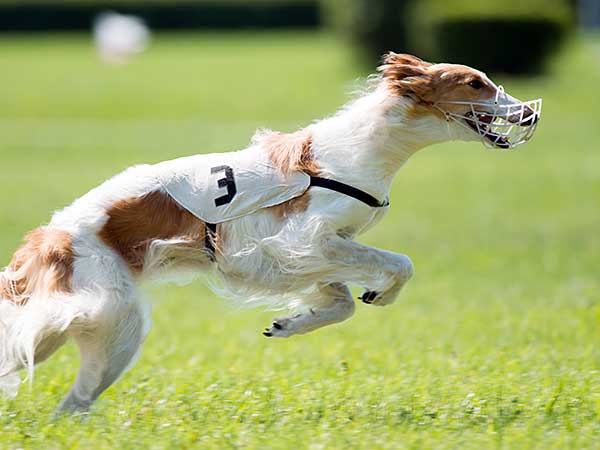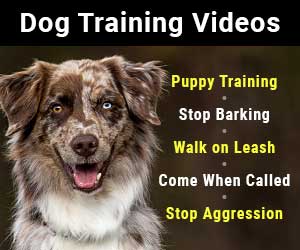
Lure Coursing Offers Dogs The Thrill Of The Chase
Lure coursing is a competitive sport open mostly to sighthound breeds, including the Greyhound, Whippet, Saluki, and Irish Wolfhound, but it can also be enjoyed by other energetic and focused breeds including the Australian Shepherd. As it involves chasing a lure, these breeds and other sighthounds have a natural instinct for the sport and will generally not require any specific training to compete. The AKC also has a pass/fail trial called the Coursing Ability Test that is open to all breeds.
In coursing competition, dogs will chase a mechanical lure across a field, simulating the action of a live course or hunt. The dogs can run individually but more often will run in groups of two (braces) or three (trios). The idea is to gauge how well the dog can remain focused on its prey without becoming distracted by the competition.
Because sighthounds have an innate ability to maintain pinpoint focus, there is usually no need for the course to be enclosed. They will simply follow the mechanical lure from start to finish without wavering from the course.
The course itself is an open field between 600 and 1,000 yards long. It must contain a minimum amount of turns in order to simulate the random pattern that natural prey would take. While most sighthounds will maintain focus, some dogs may try to anticipate the moves of the prey and cut it off, which is not allowed in competition. Dogs should not be introduced to lure coursing before they are a year old as the hard, fast turns involved can be detrimental to developing bones and joints.

ventura / stock.adobe.com
Lure Coursing Associations And Certification
There are several organizations worldwide that sponsor coursing competitions. In the U.S., both the American Sighthound Field Association (ASFA) and the American Kennel Club (AKC) require dogs to be certified before they can compete. Certifying requires a dog to run clean, meaning it pursues the lure without interfering with other dogs and be certified by a qualified ASFA or AKC judge. Dogs who are certified by the AKC may achieve a Junior Courser title, but this will prevent them from competing against other dogs.
In lure coursing competition, dogs will run twice, once in a preliminary and once in a final. Once all preliminaries and finals are run, a run-off is held. The results of the run-off combined with those of the preliminary and final determine the Best of Breed. In some competitions, the Best of Breed winners may then run to determine a Best in Field for the trial.
While there may be minor variations in judging between the different organizations, for the most part points are awarded for speed, agility, endurance and "follow," meaning the ability to remain focused on the lure rather than fellow competitors. The ASFA also includes a mark for enthusiasm. Judges can dismiss a hound from competition for various infractions including failing to run, interfering with another hound, handler interference or course delay.
Though lure coursing is an instinctive activity for most sighthounds, some younger dogs may require a bit of introductory training in order to get them used to the idea of tracking an artificial lure. For the most part, however, it won't take very long for them to get the gist of the process and then training will mostly involve maintaining focus and getting up to speed.
This is an exciting sport for hound owners and will usually involve little or no encouragement by the handler. It's all about your dog following his natural instincts. Aside from the thrill of beating the competition and gaining competitive points, it's also a wonderful way to ensure that your active dog gets all of the exercise he so desperately needs.
Have Dog Training Questions?
Check out these introductory dog training videos...
I want my dog to stop being aggressive.
I want some help training my new puppy.
I want my dog to stop barking at everything.
Get Australian Shepherd Info, Website Updates, Special Offers, and Cartoons...
FREE GIFT
You'll also receive a free copy of the ebook
My Everyday Dog Training Tools
by professional dog trainer Daniel Abdelnoor, "Doggy Dan"











 Loading Image...
Loading Image...